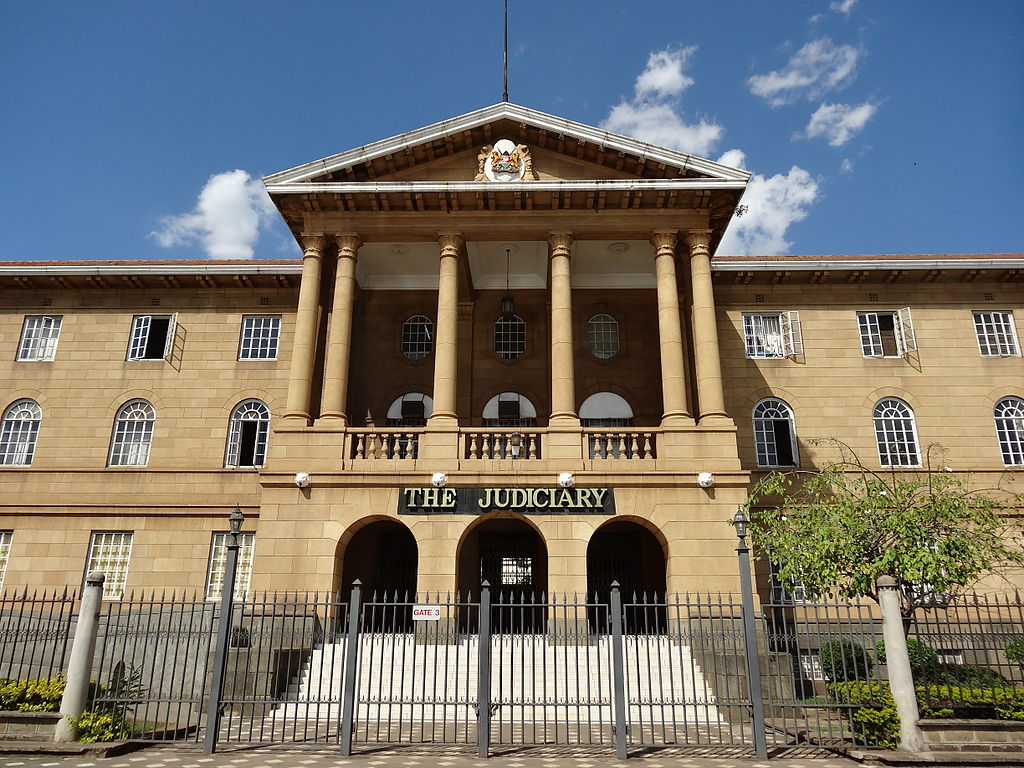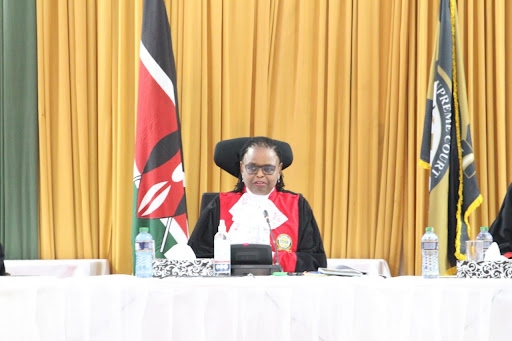

The Judiciary has this year made significant strides aimed at enhancing its independence, efficiency and accessibility.
The changes have contributed to ongoing efforts to enhance integrity in the judicial system.
Though challenges remain, the reforms have improved access to justice.
Key developments include:
Leveraging Technology
There has been a major push towards digitisation in the judicial system, including the introduction of e-filing and virtual court hearings in a bid to enhance access to justice and improve service delivery.
Key advancements included the nationwide implementation of the e-filing system, the Case Tracking System (CTS) expansion, and the digitisation of court records.
Additionally, the Judiciary introduced systems such as the Management Dashboard and Enterprise Resource Planning (ERP) system to improve data-driven decision-making and streamline administrative functions.
Investments in ICT infrastructure, including connectivity to the National Optical Fiber Backbone Infrastructure (NOFBI) and upgrades to the Local Area Network (LAN), further strengthened the reliability of the Judiciary’s digital platforms.
Access to Justice
The Judiciary made significant improvements in access to justice through the establishment and upgrading of various courts and tribunals nationwide.
Five new High Court stations were established, bringing the total number of counties with a High Court to 46.
Chief Justice Martha Koome established a high court at the Makadara Law Courts on November 5.
The court will start its operations on January 2, 2025, and will have a criminal division only.
The judge in charge will exercise supervision over Makadara and Jomo Kenyatta International Airport (JKIA) magistrates' courts.
Koome also launched the Dagoreti Law Courts in October 2024, which she said will house a small claims court and a gender justice court that will aid in decongesting Kibera and Kikuyu Law Courts.
Three new divisions of the Employment and Labour Relations Court were also established in Nairobi, while three additional Environment and Land Court stations were established, increasing the total to 40.
Additionally, three new Magistrates Courts were established, raising the total to 137 operational courts across the country.
Fifty seven (57) mobile courts were also operationalised, reducing the average distance to access these courts.
A total of 27 Small Claims Courts were established and two tribunals transited from the Executive to Judiciary.
With this transition, 26 Tribunals now operate under the Judiciary.
Additionally, Tribunals sub-registries were established in Embu and Kisumu to provide shared services to Tribunals.
Security Enhancements:
The Judiciary prioritised enhanced security measures following incidents that exposed vulnerabilities affecting the safety of judges, judicial officers, staff, and other court users.
This followed the incident that occurred at Makadara Law courts where a Magistrate was shot dead by a senior police officer while in the line of duty.
Makadara Principal Magistrate Monica Kivuti was shot in the court soon after she had delivered a ruling in a case involving the wife of the senior officer.
The court was operating in a makeshift tent at the time.
Since then, security has been heightened, and a High Court has been subsequently established at the station.
Staffing and transfer of Judges
The Judiciary recruited 957 employees during the year - 469 of the new employees were male, with 488 females.
Those appointed include 20 High Court Judges, four Tribunal Members, 119 Judicial Officers and 814 Judicial Staff.
The Judiciary had 7,077 employees, which translates to 68 per cent of the approved establishment of 10,388.
Two per cent of the Judiciary’s total workforce comprises persons living with disabilities.
This percentage is reflected across the Judges, Judicial Officers and Staff.
The Judiciary also effected the transfer of 31 Judges of the Environment and Land Court (ELC) ahead of the start of the Climate Justice Conference on November 25, 2024.
The conference was held from November 25 to 29 at the Moi University Annex Campus in Eldoret.
The ELC plays a key role in climate change mitigation efforts by adjudicating climate change-related cases such as those involving pollution; enforcing environmental laws and regulations; resolving land disputes and promoting public interest litigation to protect the environment and address climate change issues.
The ELC also enables communities affected by climate change to access justice through legal representation or self-representation.
In the changes announced on November 22, Lady Justice Theresa Murigi was moved from the Makueni ELC station to the Milimani Law Courts while Lady Justice Anne Nyukuri was moved from Machakos to Kakamega.
Justice David Mwangi was transferred from Milimani to Kajiado.
On the other hand, Justice Anthony Kaniaru was transferred from Embu to Kitui, while Lady Justice Gacheru was moved from Murangá to Narok.
Despite these advancements, Chief Justice Martha Koome says the Judiciary continues to face significant challenges, particularly with respect to adequate funding.
"Our current resource allocation does not meet the growing demands of the institution. Emerging issues, such as the security and safety of judicial personnel and court infrastructure, have introduced additional resource needs," she said during this year's (2024) launch of the Judiciary’s performance report dubbed SOJAR.













